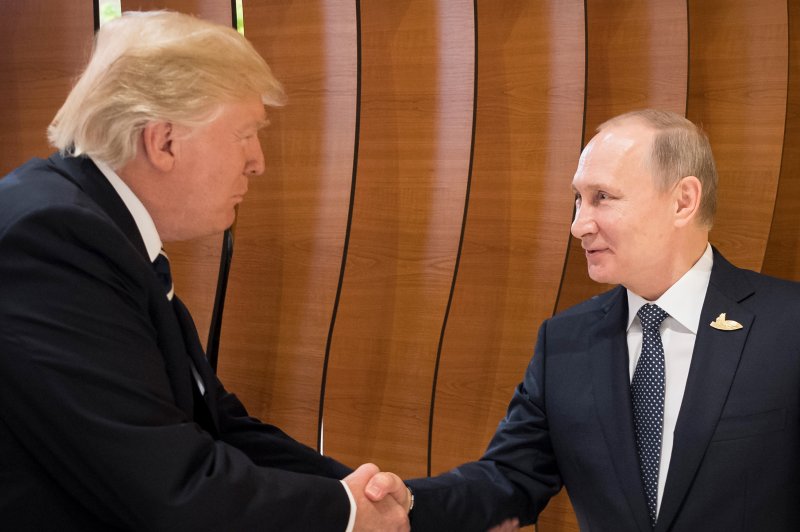An aide to Russian President Vladimir Putin says the Kremlin isn't interested in playing regional games with Washington. Photo courtesy of SteffenKugler/EPA
May 29 (UPI) -- From increasing sanctions pressure to energy leverage, the Kremlin has the impression Washington is up to political games in the region, an aide said.
Speaking at the start of the year, Polish Defense Minister Mariusz Błaszczak said he was expecting more U.S. troops in a country on the edge of the Russian sphere of influence.
"I guarantee that this presence could be a success not only for Poland, but also for Central and Eastern Europe," he said.
U.S. interests in Poland extend beyond defense into the energy sector. Central and Eastern European countries like Poland have few resources of their own, leaving them dependent on Russia for energy supplies.
The U.S. State Department has said it believes U.S. natural resources could contain Russian leverage. U.S. Sen. Bill Cassidy, R-La., meanwhile, is pushing his Small Scale LNG Access Act, which would facilitate the approval process for low-volume liquefied natural gas projects in the United States. That could extend the U.S. energy reach into the region.
In November, Polish Oil and Gas Co., known commonly as PGNiG, signed a five-year contract to secure LNG from the Sabine Pass terminal in Louisiana, the first mid-term contract of its kind.
Yuri Ushakov, an aide to Russian President Vladimir Putin, said Washington was trying to push its agenda on the region.
"I have an impression we are being forced to play American football, but let us be frank that very few know how to play that game and, what is most important, far from everybody wishes to play it," he was quoted by Russian news agency TASS as saying.
Testifying last week, Congressman Ted Poe, R-Texas, the chairman of a terrorism subcommittee in the House, said the United States could use its energy as a "force multiplier" for U.S. leverage.
Ushakov's comments mirror those from Mario Mehran, the CEO of Wintershall, who said U.S. pressure on Russia could be a tacit way to advance U.S. economic interests in the European energy market.
"Europe must not let itself become a geopolitical football," he told UPI last year. "The framework conditions for the energy cooperation between Russia and Europe are determined by the European countries themselves -- and not by third-party countries."
Austrian energy company OMV echoed that sentiment in December when it said it was an energy company interested in "business, not geopolitics."
Both companies have a role in plans by Russian energy company Gazprom to twin the Nord Stream natural gas pipeline through the Baltic Sea to Germany. That project, and the company that leads it, have faced pressure from the U.S. government.















